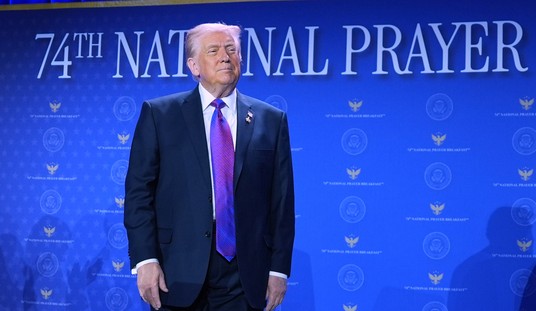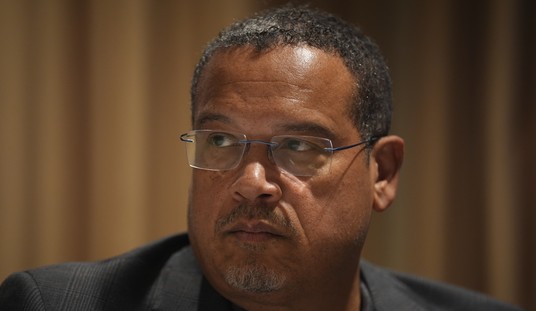Yesterday, Rand Paul articulated a path forward after Obergefell that would provide equal treatment under the law while preserving the free exercise of religion, which is to get government out of the marriage business. “All Americans have the right to contract,” Paul wrote, and enforcing contracts falls clearly within the purview of government. By defining social constructs, Paul warns, creates “a danger that a government that involves itself in every nook and cranny of our lives won’t now enforce definitions that conflict with sincerely felt religious convictions of others.”
Indeed, and this is one reason among several that I have advocated eliminating recognition of marriage as a government function altogether since 2008. In my column today for The Week, I remind readers that the close partnership of the state and houses of worship in the business of marriage puts the practice of religion at serious risk:
But nowhere in the social service realm are government and religion closer than in marriage. In every jurisdiction in the U.S., ordained ministers have the authority to certify that a marriage has taken place, once the necessary licensing has been completed by the state or local jurisdiction. Even more than in the above examples, the minister acts in place of the state, as its agent in the finalization of the legal process. Rather than having a strict separation of church and state, the two have been joined in wedlock all along, especially when it comes to marriage. …
The Supreme Court’s sweeping gay marriage ruling makes the problem exponentially worse. By declaring government recognition of same-sex marriage a constitutional right rather than just voting it in as a popular decision for government policy, it sets up the state to intervene in the doctrine of houses of worship to force a change in their definitions of marriage. Even RFRA may not suffice to protect religious liberty in this case, now that the balancing test pits one constitutional right against another. Already some are calling for churches that refuse to comply to get penalized through the loss of tax exemptions, and Kennedy’s opinion makes it clear that the majority only envision the rights of religious groups and individuals to “advocate” for traditional marriage. For many smaller groups, a loss of tax exemption would wipe them out — and all of the other good work they do in their communities. Those who comply would exist in a similar space as “official” churches in authoritarian nations such as China, where compliance with government edicts is the price to pay for avoiding closure by the state, through one means or another. …
[Paul’s proposal] would keep government intervention in domestic relationships between consenting adults limited to enforcing contracts, a task for which self-government is designed, and keep them out of the business of official recognition and regulation of love, an arena few in either camp would normally leave to bureaucrats in any other circumstances. Those who wish to have their unions blessed as marriage could test the market for houses of worship with definitions that embrace those relationships, while those who do not wish to participate in such events could just be left alone.
Here’s the problem with this proposal. It sounded radical in 2008, but now it sounds reactionary, a kind of “sour grapes” post-Obergefell. People who opposed this a few years ago now might grasp it as a last-gasp attempt to head off disaster, while those who felt themselves on the short end of public policy in 2008 will see no need to change things after last week’s reversal in fortune. The latter will claim, with some justification, that the limited-government principle matters less to conservatives now than the fact that their definition of marriage no longer applies.
And that’s the charitable way to see the changed political environment. David Harsanyi, who supported legal recognition of same-sex marriage for years, wonders whether he made a mistake not on the merits, but on the forces it has unleashed:
I’ve supported same-sex marriage ever since I first heard the idea. And when I became a political columnist in the early 2000s—despite being the “conservative” at a good-sized newspaper—I was the only one at the paper (as far as I can recall) who unequivocally backed gay marriage publicly. Though I wasn’t gullible enough to believe I’d be persuading many readers, I was gullible enough to believe that my allies in the cause were merely concerned with “equality.” …
Do a majority of Americans support gay marriage because they have a desire to see civil society overtaken by the administrative state? Because it only took a few hours after the Obergefell v. Hodges decision for Time to publish a piece by New York Times columnist Mark Oppenheimer suggesting government shouldn’t be “subsidizing” religion or non-profits at all. The point, of course, is to punish churches for being a bunch of intolerant nits who are holding up progress. The word “subsidize” suggests that parishioners are receiving checks from taxpayers when, of course, what Oppenheimer really means to say is that these silly people are handing money to reactionary institutions rather than the most progressive church of all …
he evangelical florist is discriminating against the gay couple in the same way Jeffery Toobin is discriminating against the Catholic who asks him to write a column defending the unborn. The liberty interest being asserted by the florist is choosing not to participate in an event because of a religious consideration. The florist is not turning anyone away because they are gay. On the other hand, government will be forcing the florist to surrender his faith or his business.
How many backers of theoretical gay marriage will regret the reality of gay marriage? As a matter of policy, it doesn’t matter much anymore. And I have no moral qualms about same-sex marriage itself. I don’t believe it destabilizes the institution or ruins the lives of children. Then again, it doesn’t exist in a vacuum, either. If same-sex marriage isn’t just a pathway to happiness, freedom, and equality for gay citizens, but a way to pummel religious Americans into submission, it will be a disaster.
The first few days’ reactions inform us that Obergefell is not the end, but the beginning. And that’s why it might be too late to get government out of the marriage business. It just handed a very big club to those who want to coerce the religious into what’s known as freedom of worship rather than the free exercise of religion that the First Amendment protects. It will be used as a weapon against government’s partners in marriage, and it won’t stop until churches become state-approved or state-persecuted.







Join the conversation as a VIP Member